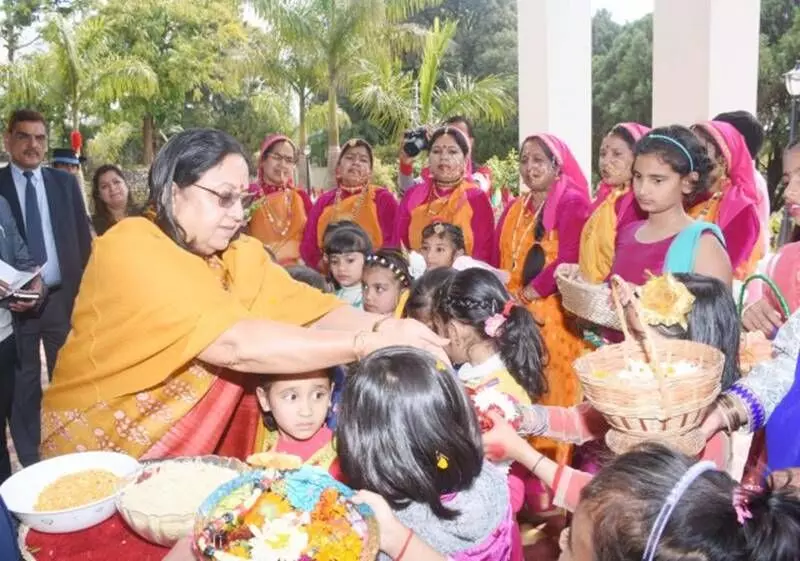Celebrated on the first day of the Chaitra month of the Hindu calendar, Phool Dei is Uttarakhand’s harvest festival which encapsulates the bond between the Himlayan state’s culture and its rich ecology.
Along with the preparation of the dei (ceremonial pudding made of jaggery), the celebration mainly involves groups of young girls who sing folk songs and shower flowers on the doorsteps of the houses as a gesture of blessing the households. The girls visit the households with plates full of rice, jaggery, coconut, green leaves and flowers as a sign of prosperity.
The festival marks the commencement of the spring season. A guest visiting the state during the spring season is traditionally the delicious ceremonial pudding. The celebrations also involve exchanging gifts and wishes for the well being of the community.
Environment at the crux of culture
From folk songs, the dishes prepared, to the flowers used in the ceremonies, almost every aspect of the Phool Dei festival has a perceptible undercurrent of the environment of the Himalayan state.
But with the passage of time and rising human interaction with the ecology in the state, environmentalists point towards the imminent need to protect the environment as the cultural practices in the state are also dependent on it.
“The entire festival revolves around the bounties of nature. The flowers we use in the celebrations are fast disappearing. Unless we realise that our celebrations are all based on nature itself, we are living in a paradox. Culturally, we are celebrating festivals and worshipping nature but our daily lives are spent with utter disregard for it,” JP Maithani, chairperson of the Dehradun-based non-governmental organisation named Aagas Foundation told Gaon Connection.

The girls visit the households with plates full of rice, jaggery, coconut, green leaves and flowers as a sign of prosperity.
“Many practices enshrined in the culture are actually meant to protect our environment. All hunting activities have been discouraged in the month of Chaitra as the season falls after the mating season of deers and the female deers are usually pregnant in the month. Hunting them in pregnancy can destabilise their population. It’s only an example, I want to emphasise that there cannot be a culture unless we protect the environment,” he added.
Meanwhile, Shalini Mishra Dhyani wrote an article for the Down To Earth magazine dated March 15, 2009 which mentioned that the rising temperatures as a result of global warming have caused the spring flowers in Uttarakhand to bloom before their flowering season.
“High temperatures have caused spring flowers to bloom earlier than usual in Uttarakhand disrupting the annual festivities. This has dismayed children in the Garhwal district the most because each year when they wake up before dawn to collect wild flowers like Rhododendron arboreum (burans), Prunus cerasoides (painya) and Rainwerdtia indica (fyunli), they return empty handed,” Dhyani wrote.


















